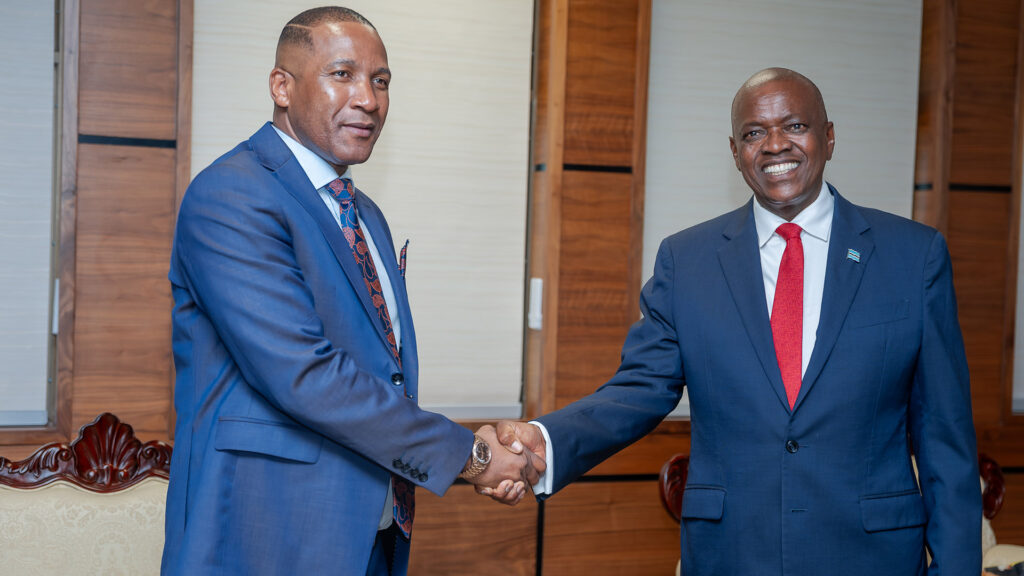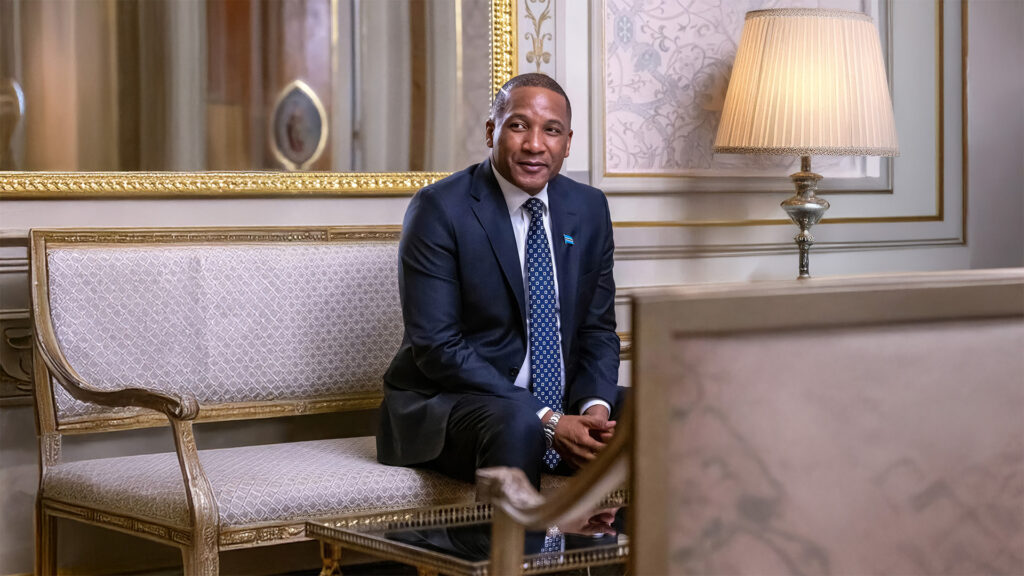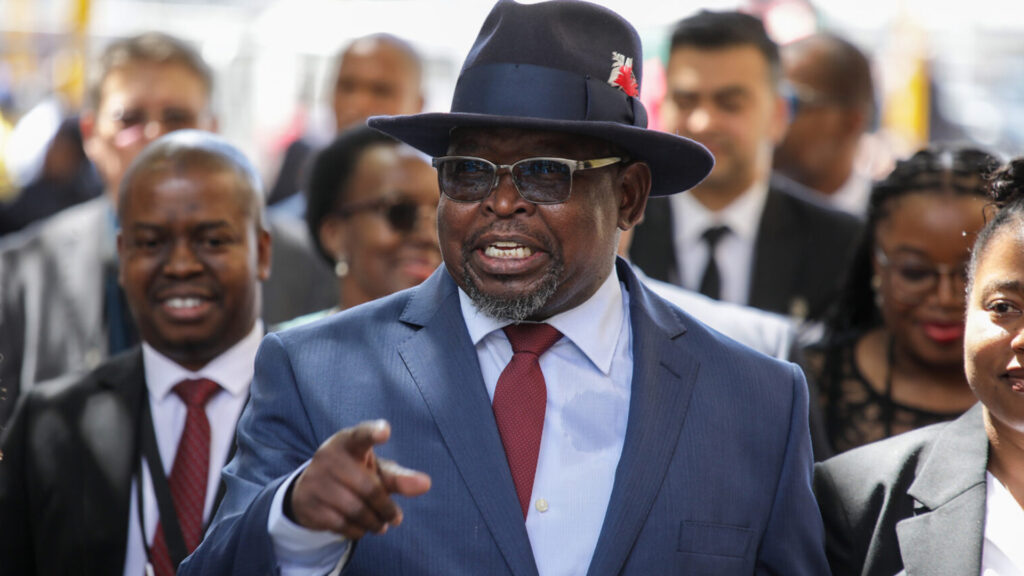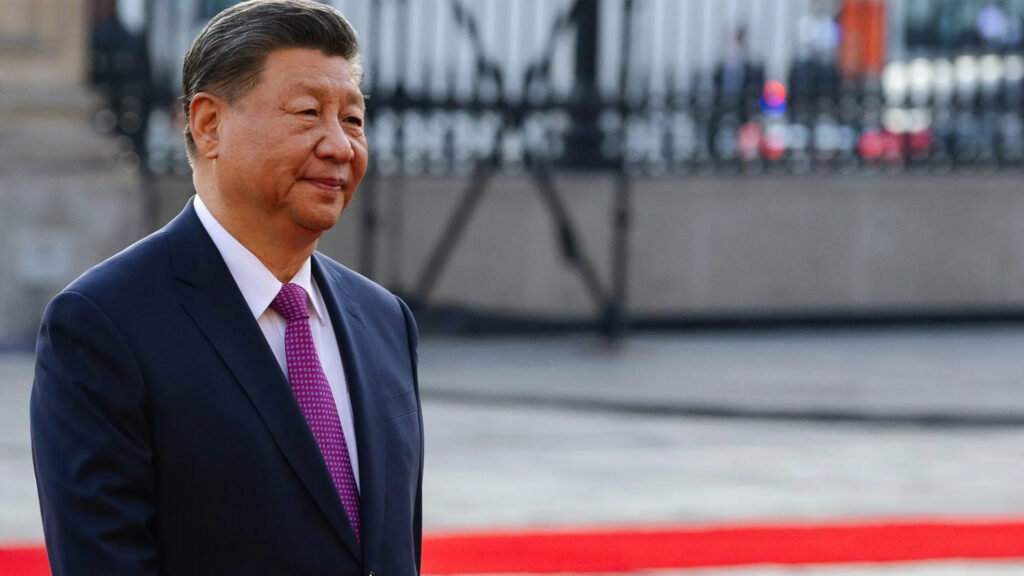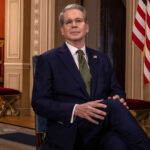GABORONE, Nov. 4, 2024 — In a groundbreaking event for Botswana’s political history, Duma Boko of the UDC assumed office as the country’s president on Monday.
The official introduction to the presidential staff followed a peaceful and orderly transition of power from Mokgweetsi Masisi, who had led the ruling BDP until its surprising defeat in last week’s elections. This shift marks a new chapter in Botswana’s governance, with Boko highlighting the strength of the nation’s democratic framework.
Highlights
- Historic Transition: Duma Boko, leader of the Umbrella for Democratic Change (UDC), officially took office as Botswana’s sixth president, marking a significant regime change after nearly 60 years of Botswana Democratic Party (BDP) rule.
- Smooth Handover: Outgoing President Mokgweetsi Masisi gracefully conceded defeat and facilitated a seamless transition, which Boko lauded as a testament to Botswana’s democratic maturity.
- Election Outcome: The UDC secured 36 parliamentary seats compared to just four for the BDP, reflecting voter dissatisfaction with economic challenges such as high unemployment and wealth disparity.
- Democratic Example: The peaceful transfer of power serves as a model for democracy in Africa and globally, with Boko emphasizing Botswana’s stability and the resilience of its democratic institutions.

A Testament to Botswana’s Democracy
At a press briefing held at the Office of the Presidency, Boko expressed his admiration for the nation’s ability to uphold democratic values. “We were anxious, unsure of how this outcome would be dealt with, whether there would be acceptance and peaceful handover,” Boko stated.
However, the transition was seamless, thanks to Masisi’s early concession and assurance that he would respect the electoral outcome. “Botswana today sends a message: democracy is alive, democracy is in action,” Boko declared, underlining the country’s role as a beacon of democracy on the African continent.
Masisi’s Graceful Concession
Outgoing President Mokgweetsi Masisi, who had led the BDP for one term, acknowledged the people’s choice in a press conference. “The responsibility was massive because we never had a regime change before,” Masisi noted, emphasizing the magnitude of this political shift.
Despite the historic loss, Masisi pledged that the BDP would become a “vibrant opposition,” demonstrating a commitment to constructive political engagement moving forward.
Election Results and Voter Turnout
The UDC’s decisive victory, securing 36 of the 61 parliamentary seats, marked a major turning point for Botswana. The BDP’s dismal performance, with only 4 seats, underscored growing public discontent with the party’s handling of economic issues.
Botswana’s Chief Justice, Terence Rannowane, officially announced the results on national television, confirming the end of BDP’s six-decade dominance.
Voter turnout was an impressive 80%, with over one million citizens registered to vote. The electorate’s concerns centered around economic mismanagement, rising unemployment—which stands at 27%—and widening wealth gaps, factors that played a pivotal role in the BDP’s defeat.

Economic Challenges Await
Botswana, a country known for its diamond wealth and prudent fiscal policies, faces significant economic hurdles. The diamond industry, which has long been the backbone of the nation’s economy, is experiencing a global downturn, exacerbating economic disparities.
Many Batswana have grown frustrated with high unemployment rates, and the new administration under President Boko will need to implement effective policies to spur economic growth and address these pressing issues.
Industry Insights: Political and Economic Context
Botswana’s transition of power is a significant event not only for the nation but also for the broader African political landscape. The country joins a growing list of African nations witnessing shifts in long-standing political structures, signaling a wave of political rejuvenation driven by young and economically conscious voters.
The BDP’s decline mirrors trends observed in countries like South Africa, where historical parties face waning influence amid changing voter priorities.
The diamond industry’s decline has put pressure on Botswana’s economic resilience, and Boko’s administration will need to diversify the economy to create jobs and sustain growth. Global market analysts are closely watching how the new government will tackle these challenges while maintaining Botswana’s reputation for good governance.
Reflections on Democracy
President Duma Boko’s leadership will be under scrutiny as he works to fulfill his promises of economic reform and inclusivity. The peaceful handover of power has set a high standard for political transitions in Africa, with Botswana once again proving its commitment to democratic principles.
The world will be watching to see if this historic moment translates into tangible progress for the nation.
